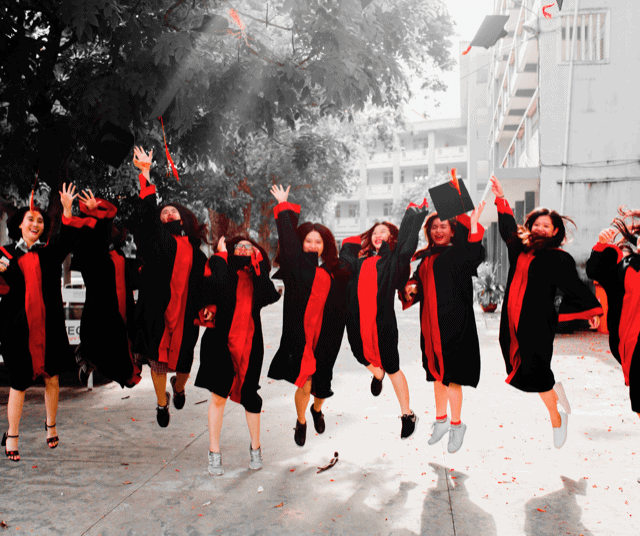Coaching vs. Advising
Higher education’s approach to academic advising is an ever-evolving quest to assist students in adjusting to post-secondary education life. The function of academic advising is to guide a student along their educational path. Academic coaching is sometimes considered ancillary or complementary to a student’s journey[1]. Therefore, coaching in academic advising has gained traction over the last decade. This is due, in part, to its roots in helping executives and professionals realize their potential. This is accomplished through actionable, hands-on guidance to achieve self-actualization, goal attainment, and self-motivation among others[4].
First-Year Retention
First-year student retention and persistence in higher education is a focal point for institutional leaders. Retention refers to whether or not a student returns to their institution for their second year. Retention rates directly effect a specific institution as they have essentially ‘lost’ a student. Persistence refers to whether or not a student has enrolled in any institution for their second year. Therefore, persistence is a systemic issue for higher education.
According to the National Student Clearinghouse, in the fall of 2017, 61.7% of students were retained by their institutions. Similarly, 73.8% of students who entered school in the fall of 2017 persisted at any other college or university for the fall of 2018. These figures represent a +2.7% increase in retention and a +2.2% increase in overall persistence since the fall of 2009. This is in line with data from the National Center for Education Statistics and College Transitions. The NCES estimated that in the fall of 2018 there were 16.6 million students enrolled as undergraduates at degree-granting postsecondary institutions. This means that just over 6 million students left higher education after their first year of school.
Students face numerous external barriers and challenges. What can institutions do to retain more of their students? Or at least give themselves a chance[2][6]? The answer is to examine a high touch function of the institution: Academic Advising.
Coaching as an Advising Model
Generally, academic advising and academic coaching exist in separate spheres hosted by different people external and/or internal to the organization. Since models of academic coaching vary from institution to institution. In some models, academic coaches are external campus partners with whom students communicate to receive guidance on mostly non-curricular issues. While in other models, students receive this coaching from peers or other campus staff that include a focus on both non-curricular and curricular issues[3][5].
Therefore, the question is ‘why’? Why doesn’t academic advising and academic coaching concurrently exist within one academic advising coach? What would this model look like if we were to bring academic coaching and academic advising into the same person? What skills would this person need to help students achieve success in and out of the classroom? Where would they obtain the knowledge and skills required to support the student academically and personally?
First, the type of conversations advisors are trained to have with students would need to change. Instead of pushing information to the students, coaches would pull information from students. This pulling conversation is intended to extract information to help the students understand the challenges they are facing. It also identifies how they possess the tools to overcome them. This paradigm shift provides students with a single point of contact. It also provides an institution a single resource to provide funding and training. Institutions are having success with academic coaching. Therefore, implementing a coaching model for academic advisors can further enhance student success and his or her connectedness to the institution.
If you are interested in learning more about Sojourn Partners’ work in developing a coaching program for academic advisors, contact us here. We look forward to hearing how we can support your institution, students, and staff.
Resources
[1]College of Arts and Sciences. (n.d). Academic coaching. University of Colorado Boulder. Retrieved from https://www.colorado.edu/artssciences-advising/academic-coaching.
[2]Crosling, G., Heagney, M., & Thomas, L. (2009). Improving student retention in higher education. Australian Universities Review, 51(2), 9-18.
[3]Mangan, K. (2014). Advising gets personal with new coaching services. The Chronicle of Higher Education. Retrieved from https://www.chronicle.com/article/advising-gets-personal-with-new-coaching-services/.
[4]McWilliams, A.E. & Beam, L.R. (2013). Advising, counseling, coaching, mentoring: models of developmental relationships in higher education. Mentor. Retrieved from https://journals.psu.edu/mentor/article/view/61280/60913.
[5]Support Services. (2020). Academic coaching. The University of North Texas. Retrieved from https://learningcenter.unt.edu/coaching.
[6]Wood, J. L. (2014). Examining academic variables affecting the persistence and attainment of black male collegians: A focus on academic performance and integration in the two-year college. Race Ethnicity and Education, 17(5), 601-622.

